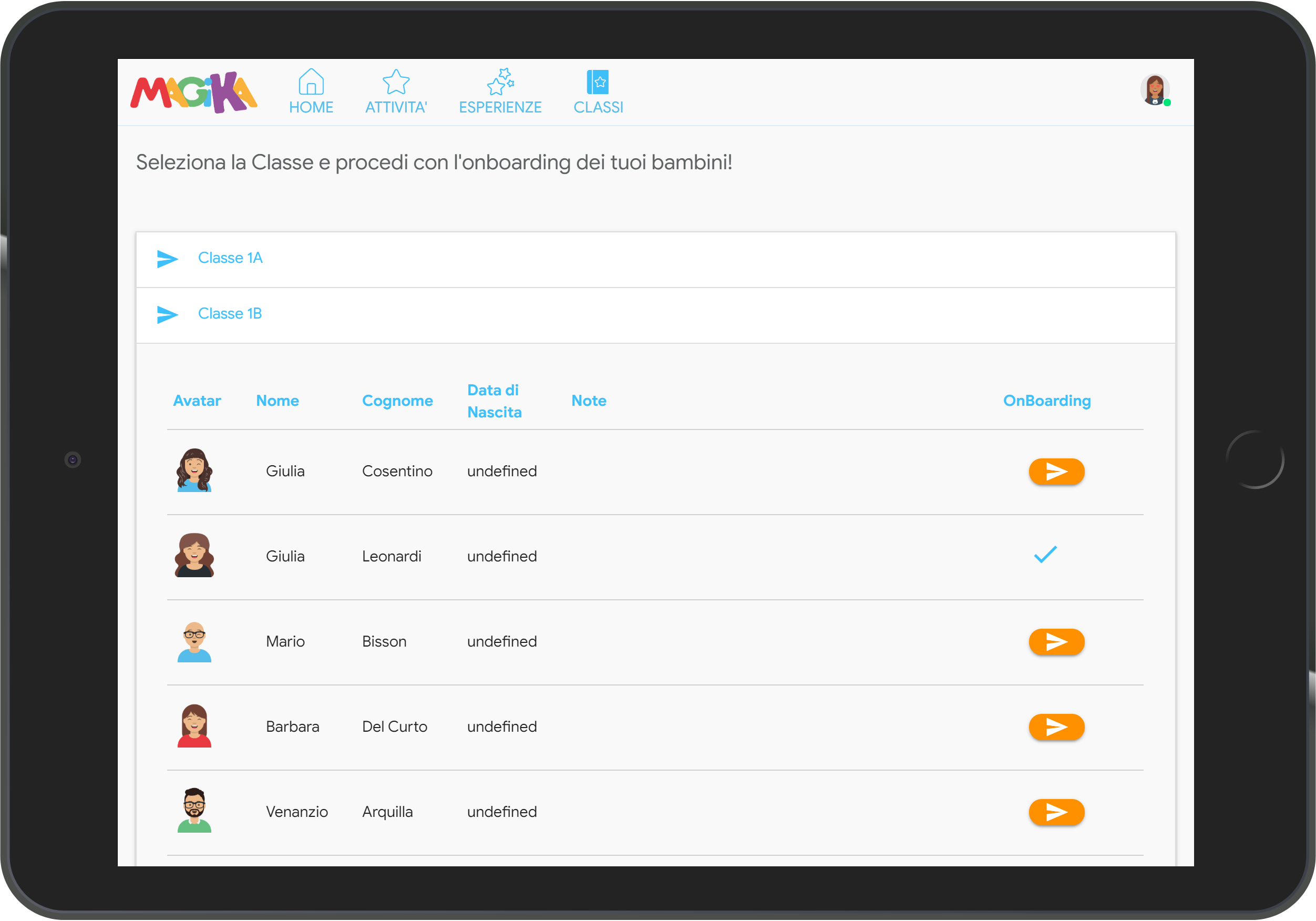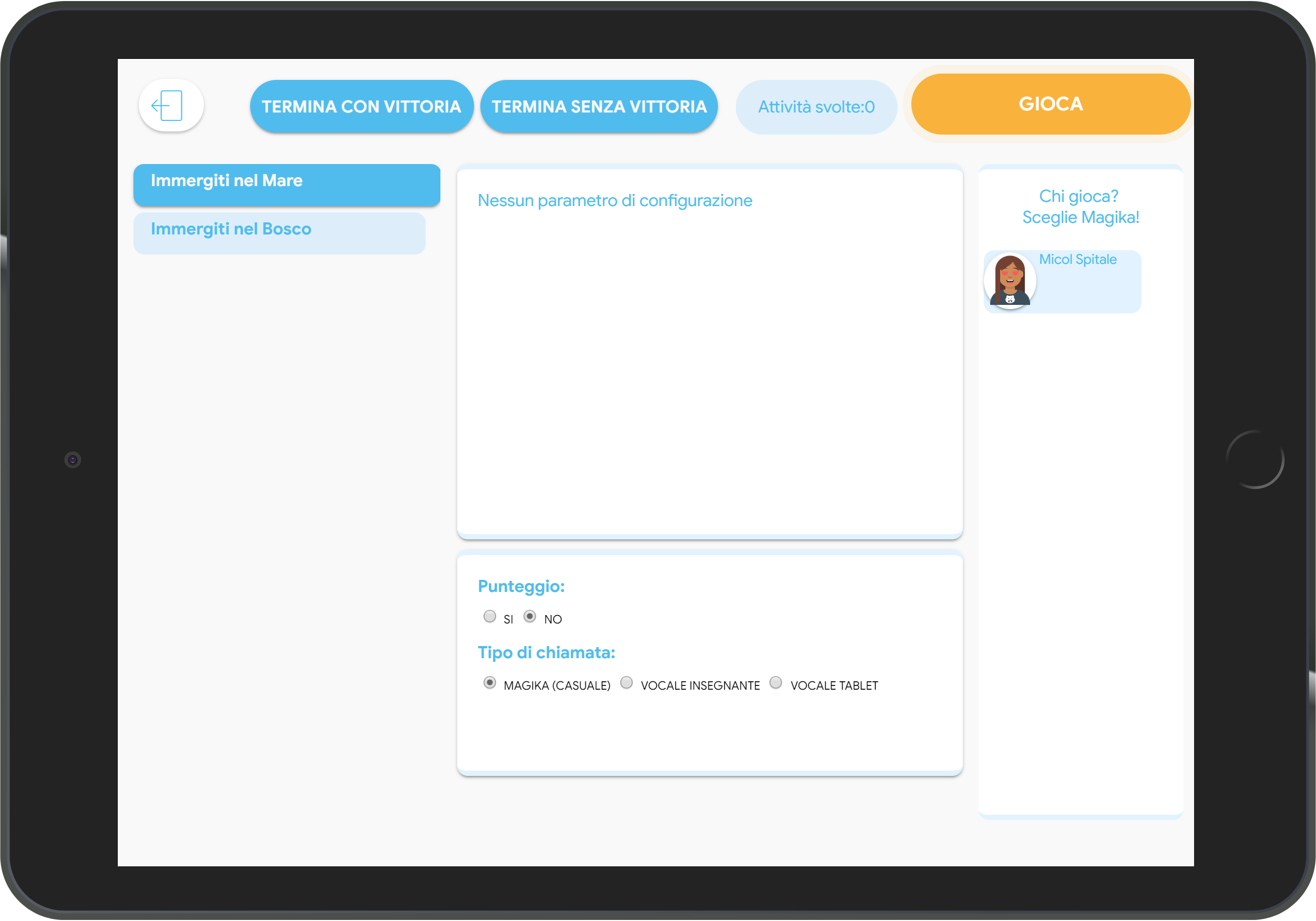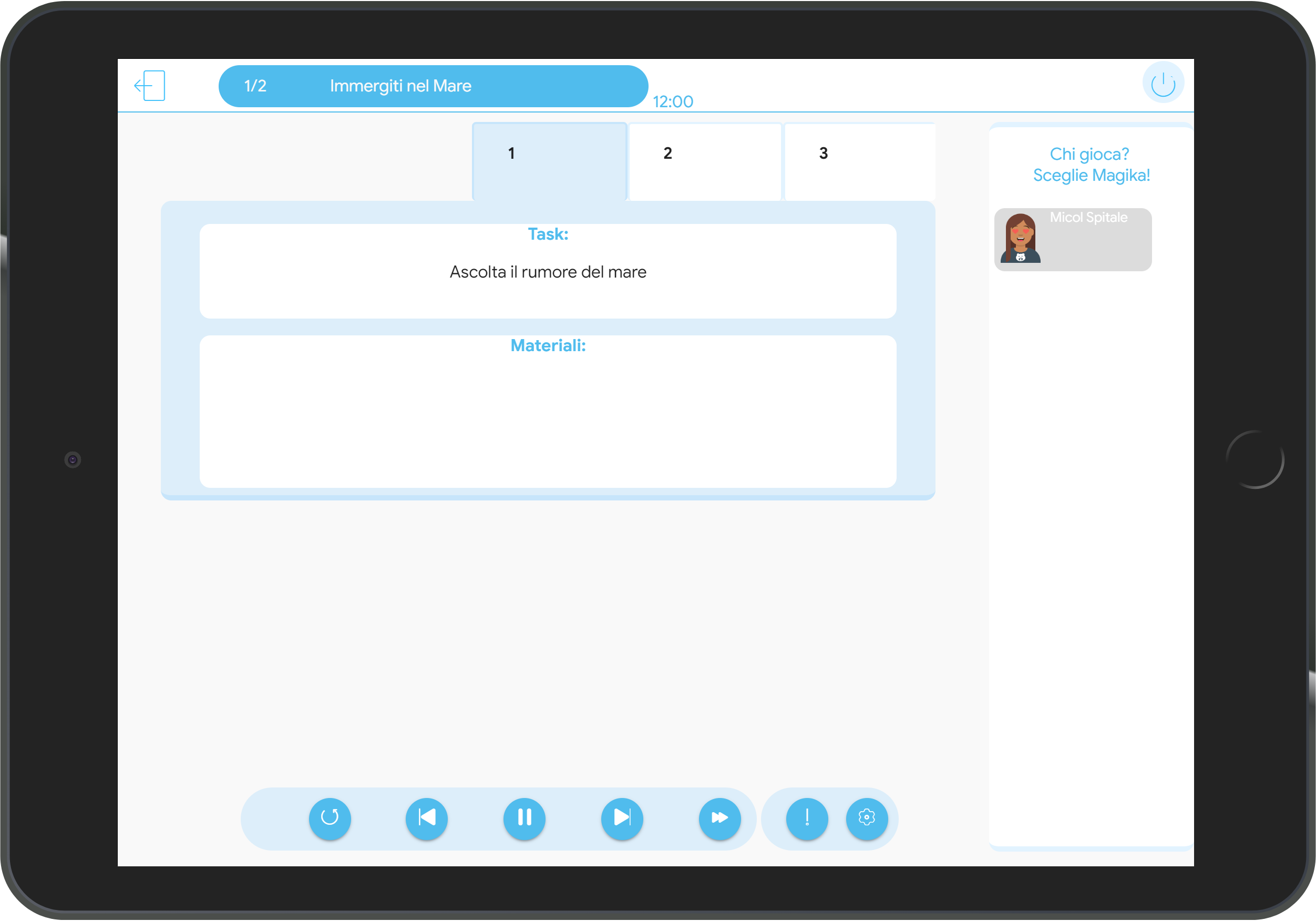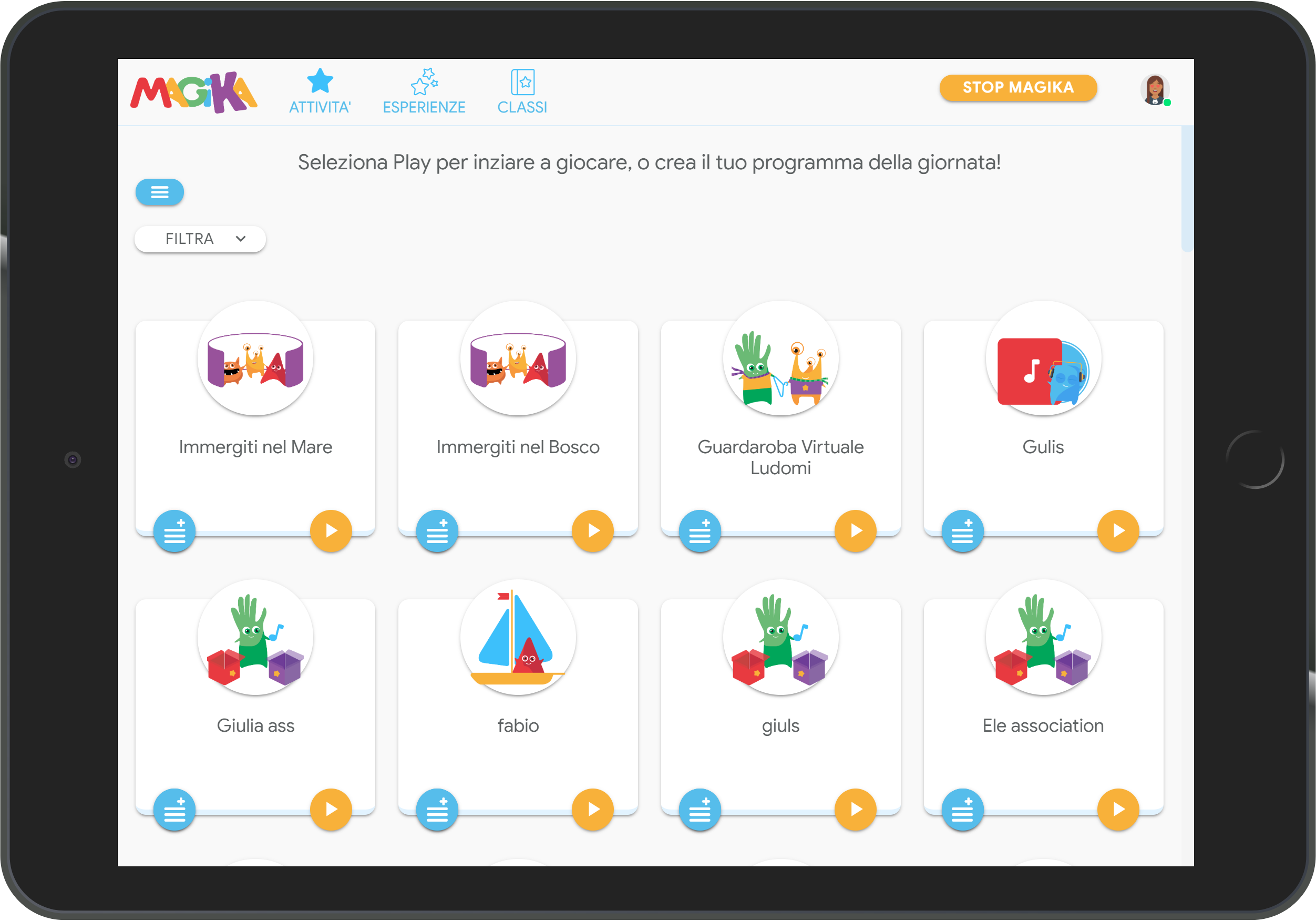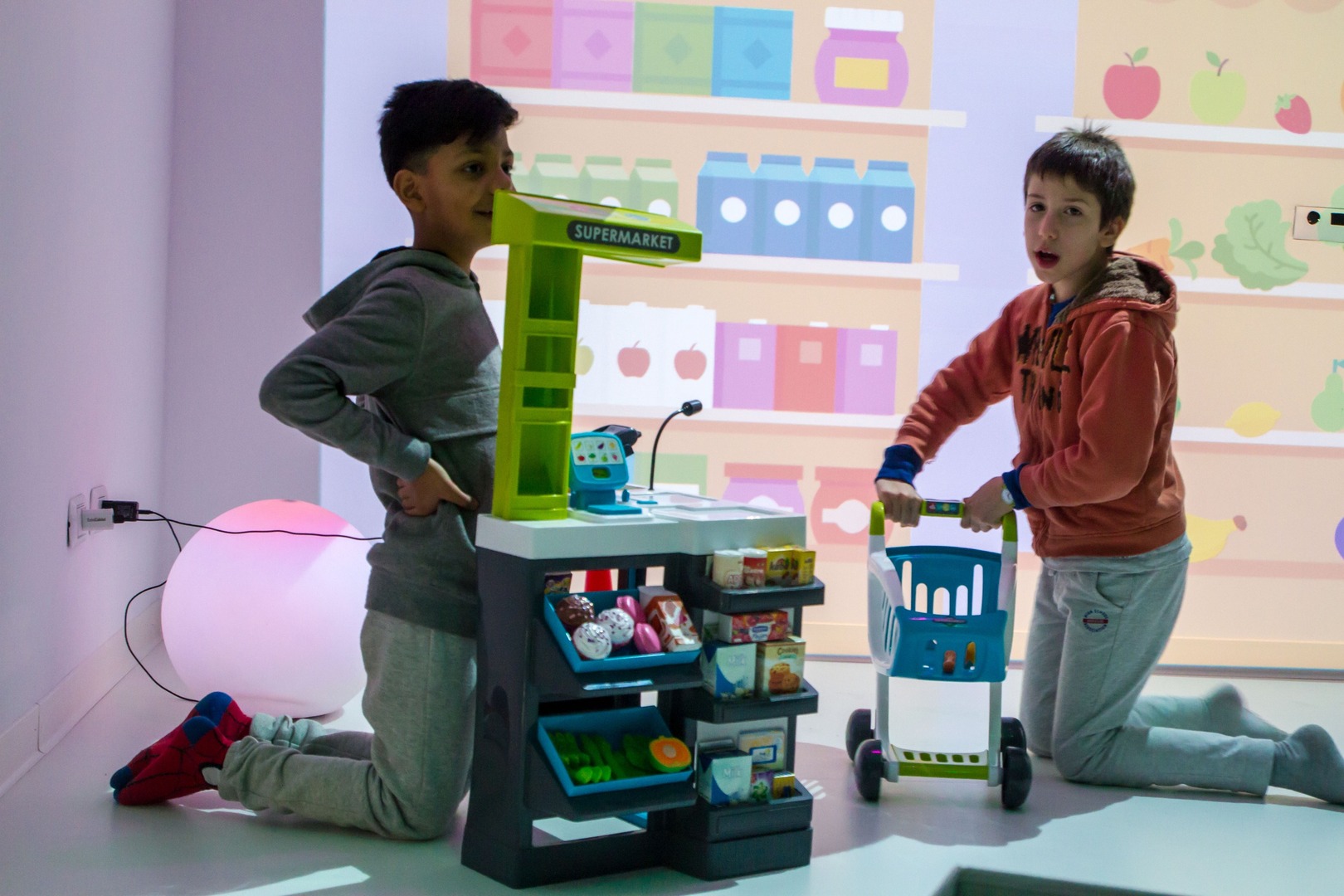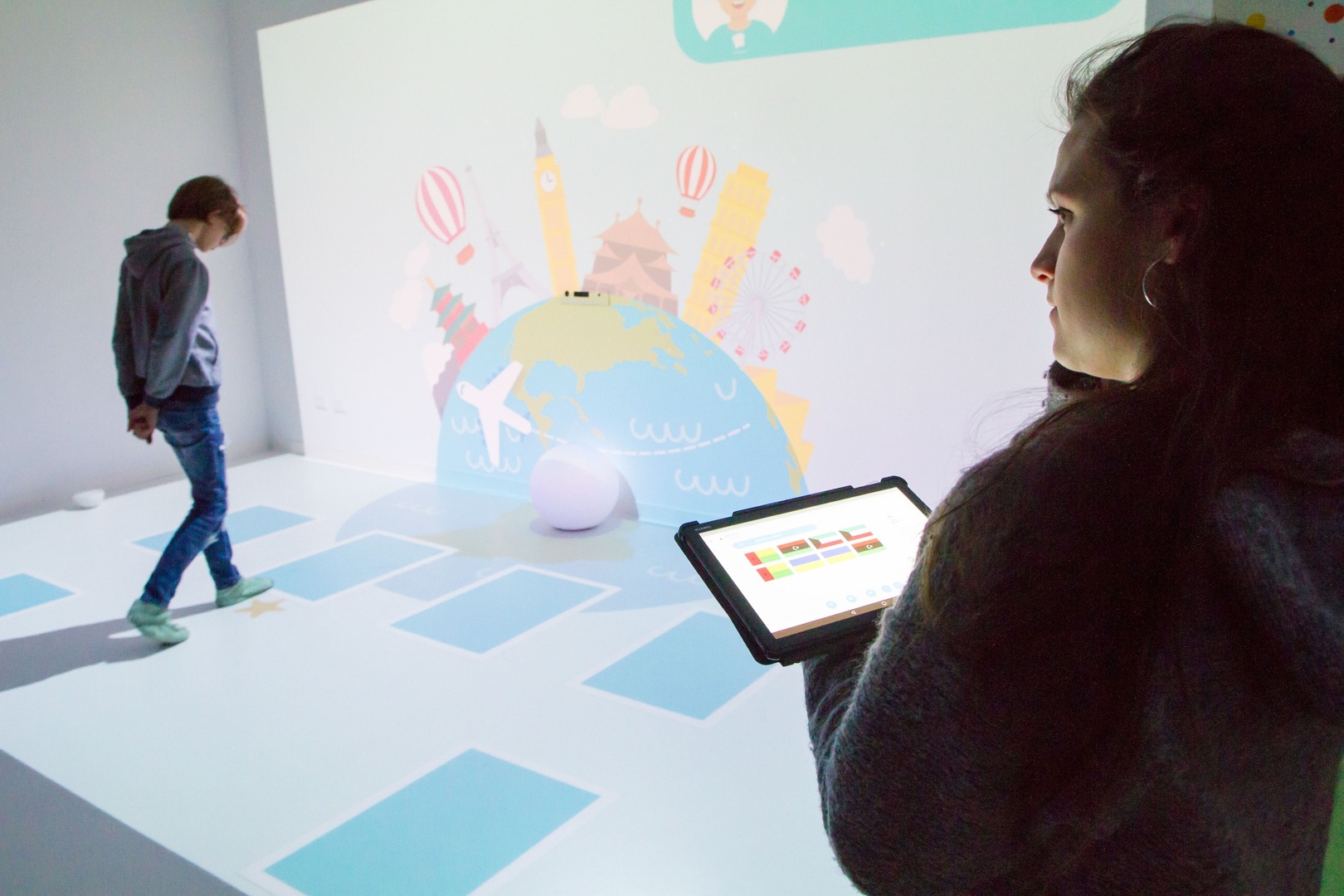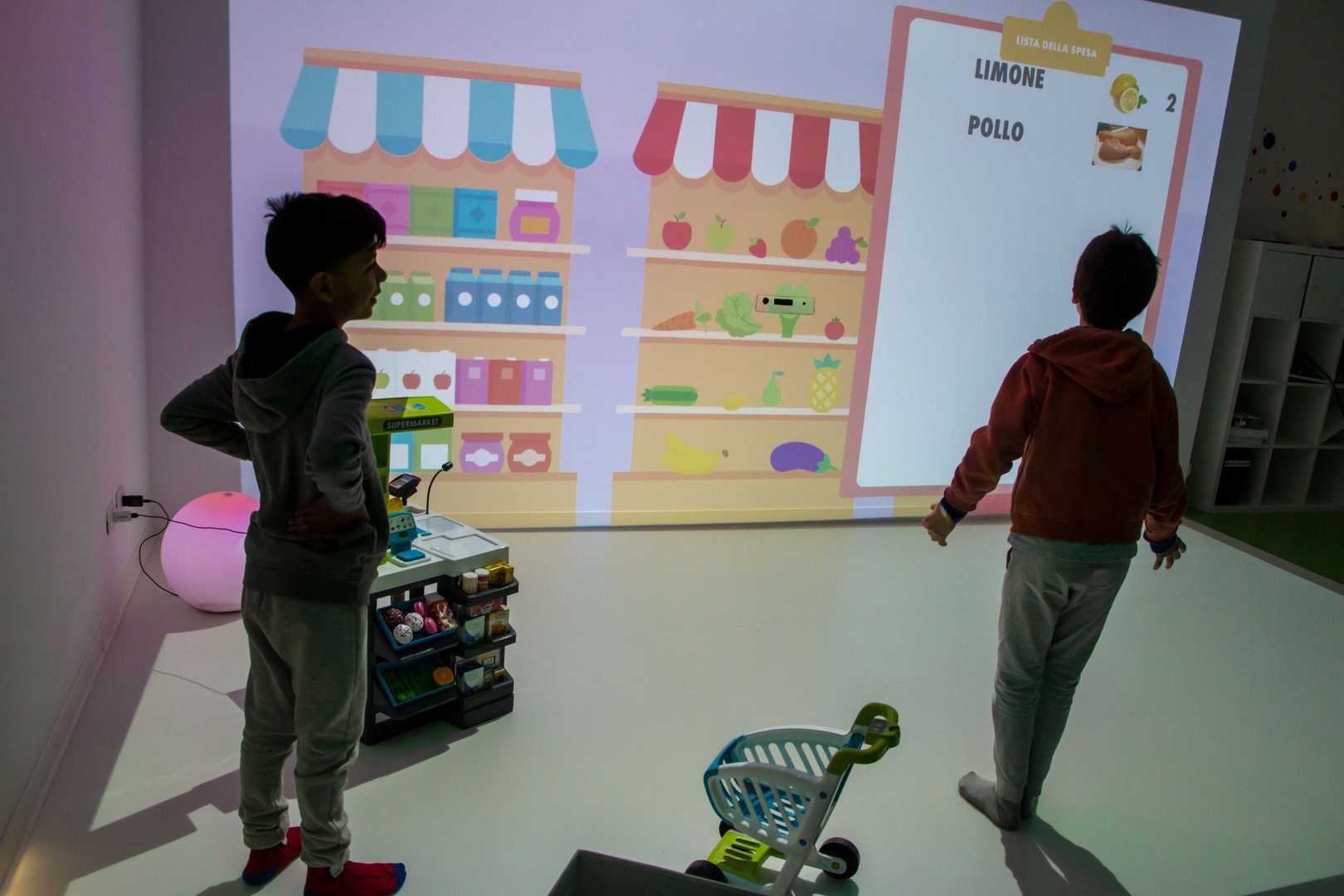
WHAT IS MAGIKA
Magika is an innovative technological solution that allows to transform any room into a “smart” space in which lights, immersive projections on walls and floors, music, sounds, aromas, and physical materials are digitally controllable, programmable, and interactive. The result is a “Magic Room” where children are exposed to multisensory stimuli and can interact with physical materials and multimedia contents through movements, gestures, and manipulation of objects. Magika allows to perform playful and educational activities (individual or collective) that stimulate all senses and are engaging. Through a tablet, teachers can control and configure each activity and personalize the experience according to the specific needs of children.
“SMARTIFICATION” OF THE SPACE
MAGIKA TECHNOLOGY
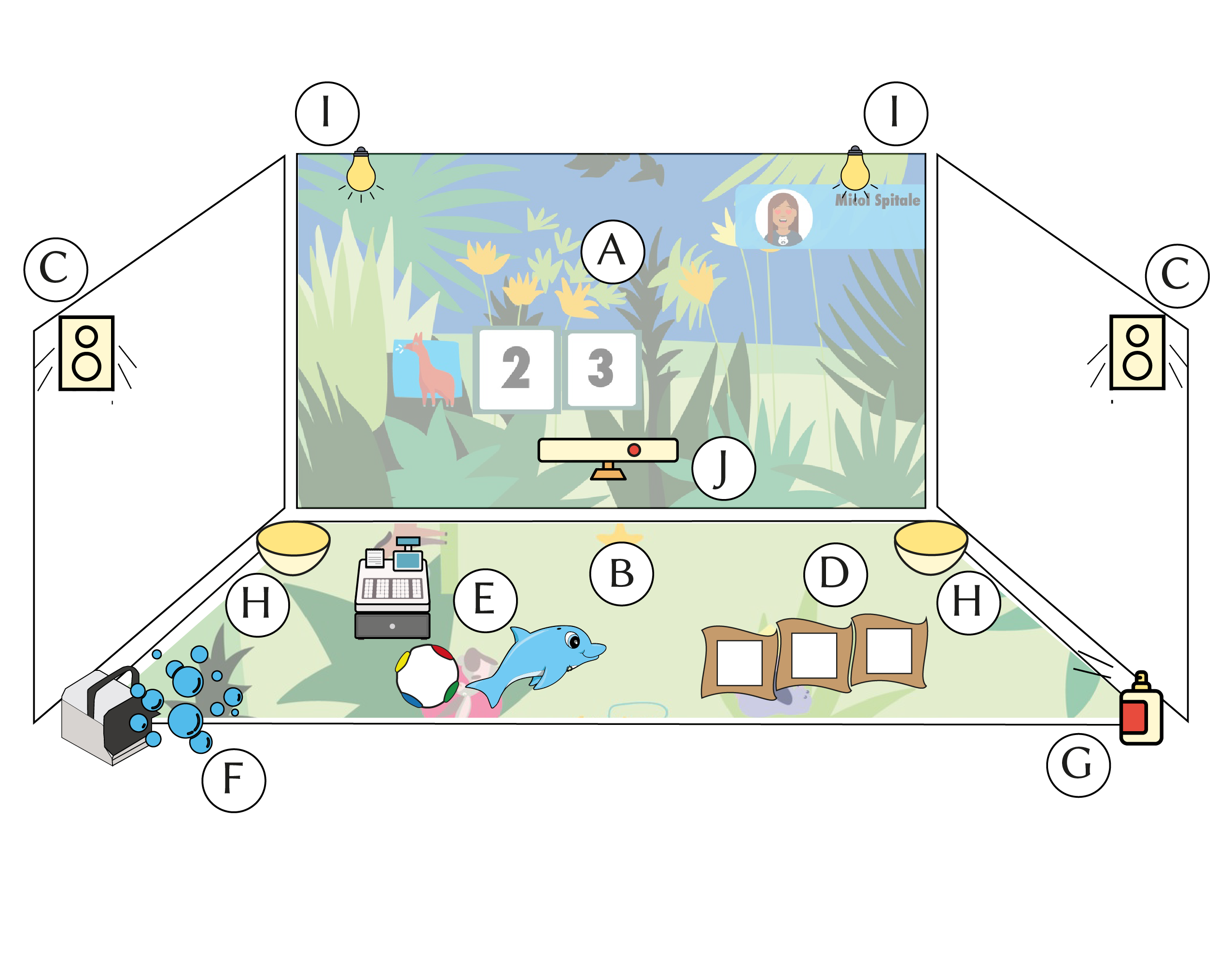
- Front projection
- Projection
- Audio System 5.1
- Frames and Materials
- Smart Objects
- Bubble Machine
- Smells machines
- Portable lights
- Fixed Lights
- Kinect movement sensor
ACTIVITIES
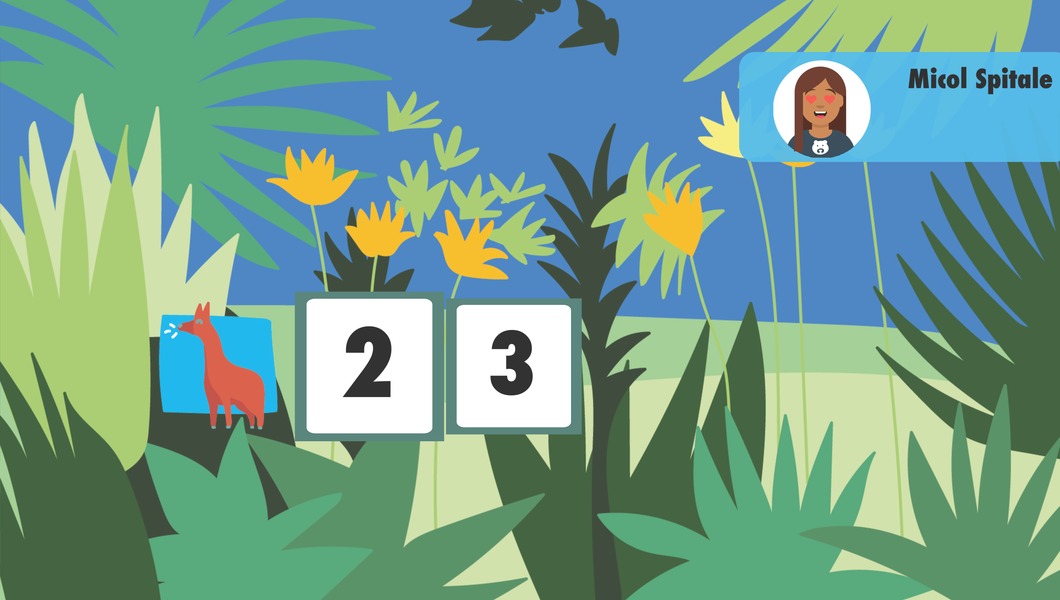
ASSOCIATION GAME
The aim of the game is to work on children’s associative capabilities between visual and auditive stimuli. Each image corresponds to a sound. Children have to decide, among the possible choices, which is the correct association.
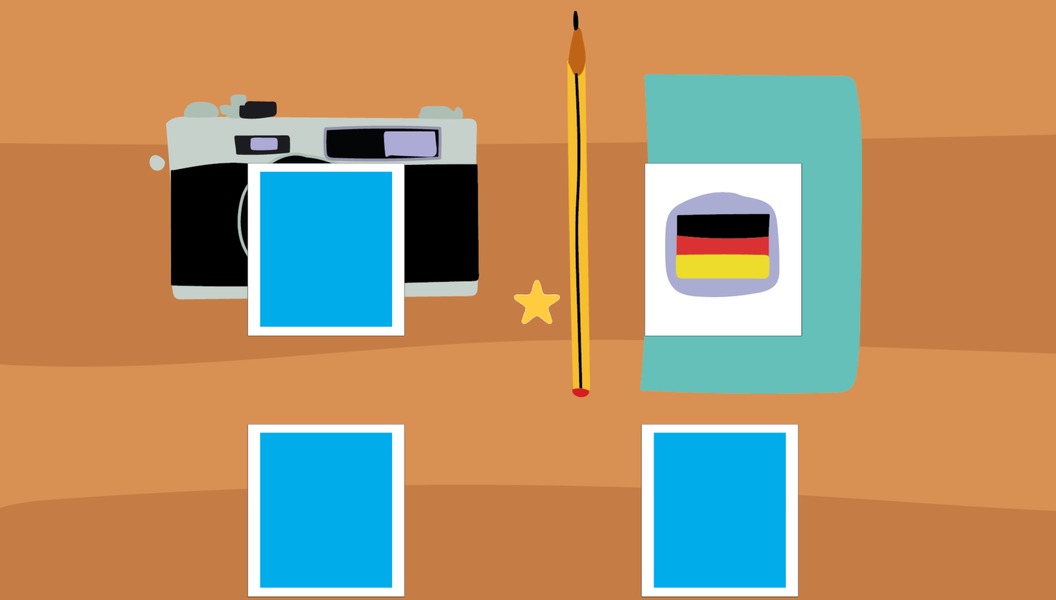
MEMORY GAME
Memory Game aims to strengthen children’s memory. On the floor projection a set of cards will appear; the player must step on the cards to unveil them, trying to find all the couples of identical pictures.
CONTROL AND CONFIGURE MAGIKA
Magika can be controlled and configured through a tablet.
Thanks to an easy and intuitive control panel, the teacher can monitor, select, and improve the activities of the room.
It takes just a few steps to choose activities and to keep an eye on what’s happening.
Through the tablet you can start or end the activity any time, thus teachers can manage children inside the room better.
THE EXPERIMENTATION
Two Magic Rooms are installed in two schools of the Municipality of Cornaredo (MI). The aim of the study is to explore the ways of learning and socialization that are implemented in the Magic Rooms, and to evaluate their educational and inclusion potential. The initial phase lasting one month and currently in progress is explorative and involves two classes of the first cycle of primary school. The second phase of the experimentation foresees a more extensive and systematic work, involving all the classes of the two schools for three months.


